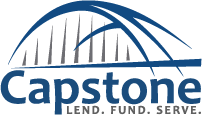Pros & Cons for Five Investment Loan Options for Condos
With lower purchase prices in comparison to single-family homes, investing in condos can be a good alternative for getting involved in property investing. Knowing how to get a loan for a condo while understanding the investment loan options is an important first step if you’re looking to begin investing in condos.
Cheaper than single-family homes, condos appreciate in value over time, making them an attractive and more accessible investment opportunity. However, the decision to invest in a condo may depend on several factors including market, location, HOA fees, and the intended use of the property over time.
There are multiple options for investing and purchasing investment properties, but investing in condos involves a different set of loan rules than the typical single-family home investment. Read on to learn more about how to get a loan for a condo as well as some of the acceptable loans for investing in condos.
What Is a Condo Mortgage and How Does It Work?
A condo investment mortgage is a type of loan used to purchase a condominium specifically for the purpose of generating rental income, meaning you plan to rent out the condo to tenants rather than live in it yourself. It essentially functions like any other investment property mortgage but with stricter qualification requirements and often a larger down payment compared to a standard home mortgage, as lenders view investment properties as having higher risk due to potential vacancy periods in between tenants and management complexities.
Loan Options and Requirements for Condos
There are multiple loan options for those looking to invest in condominiums. Understanding the loan options for condos as well as condo mortgage rates, pros and cons, and more may help you make a more informed decision as to which option best fits your investment strategy.
Bridge Loans
A bridge loan, or hard money loan, is a short-term loan that helps investors “bridge” the gap between purchasing a new condo and selling an existing property. These are typically used for investors who need quick financing before securing permanent funding. For example, if an investor is in the process of selling a property or in between tenants in another, it may be difficult to properly allocate funds to explore more condo investment properties on the market. With a bridge loan, you can move forward with new investment opportunities by giving you a source of capital quickly.
Pros:
Bridge loans are fast to secure and ideal for those who need short-term financing to “bridge” the gap between buying a condo and selling another property.
They provide more flexibility in terms of property type and usage.
Cons:
Bridge loans usually come with higher interest rates (6-10%) compared to traditional loans.
These loans typically last 6 months to 1 year, which means you’ll need to secure permanent financing soon.
Can come with high upfront fees, including origination and closing costs.
Conventional Investment Property Loans
A conventional loan is a standard mortgage loan not backed by the government. When used for investment purposes, these loans typically require a larger down payment and higher credit score compared to loans for primary residences.
Pros:
Offers lower interest rates compared to other types of loans, especially for borrowers with strong credit.
No restrictions on how you use the property, whether for long-term rentals or flipping.
Widely available through most banks and mortgage lenders.
Cons:
You’ll usually need at least 15-25% down (more if you’re buying multiple properties).
Lenders require good credit (typically 700+) and a strong financial profile.
If your down payment is less than 20%, you’ll need private mortgage insurance (PMI), which can add to monthly costs.
Jumbo Loans for Luxury Condo Investments
Jumbo loans are designed for luxury properties or condos that exceed the conforming loan limits. These loans are non-conforming, meaning they don’t meet the criteria set by Fannie Mae and Freddie Mac.
Pros:
Jumbo loans are for properties that exceed the conforming loan limits, allowing you to finance luxury or high-value condos.
Great for investors looking at high-end properties that may appreciate faster.
Cons:
Typically, you'll need at least 20-30% down, making it harder to qualify for these loans.
Higher credit score requirements (often 700+), large income verification, and detailed financial documentation.
Although interest rates are lower than hard money loans, jumbo loans can still carry higher rates than conventional loans due to their size and risk.
Portfolio Loans
Portfolio loans are offered by local banks or credit unions, and they are kept on the lender's books rather than sold to investors. These loans can have more flexibility in terms of qualification criteria and terms.
Pros:
Some portfolio loans are designed specifically for investors with multiple properties, allowing you to finance several units at once.
There are usually fewer restrictions on the property type compared to conventional loans.
Cons:
These loans may come with higher interest rates compared to traditional mortgages.
Portfolio loans are typically offered by smaller banks or credit unions, so they may not be available everywhere.
Even though they can be more flexible, they still often require detailed income, asset, and financial documentation.
Cash-Out Refinancing
If you own other real estate or an existing property with significant equity, you can use cash-out refinancing to tap into that equity and use it as a down payment for your condo investment.
Pros:
Refinancing rates are lower than hard money loans, making it more affordable.
This option allows you to tap into already existing cash quickly without needing a new loan or separate financing.
Cons:
You are putting your existing property at risk since you’re taking out a loan against it.
Refinancing can come with significant closing costs, which may add up and reduce your overall return.
You need substantial equity in your current property to make this a viable option.
Frequently Asked Questions About Investment Loan Options for Condos
Can you buy a condo with an FHA loan? Because the buyer has to occupy the property as their primary residence, an FHA loan would not qualify for investing in condos.
Can you buy a condo with a VA loan? As another government-backed mortgage loan, a VA loan requires that the borrower occupies the property as their primary residence, meaning this would not be an appropriate loan for investing.
How do you get a loan for a condo? You can apply for a mortgage loan with a lender that will run through your credit history, income, and more to determine eligibility. At that point, a significant down payment would be required. If approved, you will receive a loan agreement detailing the terms of your mortgage.
Capstone Capital Partners: Where Every Client is Family
Developing an investment strategy and searching for the right lender can be a challenge. With Capstone Capital Partners, you get a hassle-free loan experience with guidance from top financial experts and an internal approval process. No red tape, no loan committees, and no drawn out decisions. Hard money loans are made easier with Capstone.
To learn more about Capstone’s expert financial team and services, let’s get in touch!



